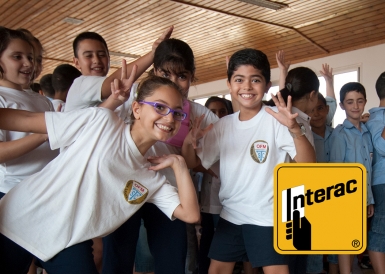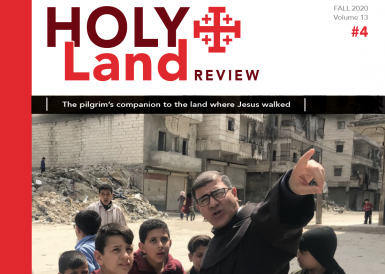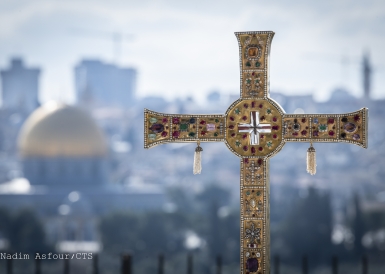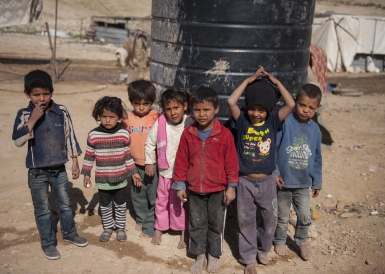
Since Archbishop Pierbattista Pizzaballa was entrusted with the special diocese of the Latin Patriarchate, he keeps coming back to the theme of the two-fold vocation of Jerusalem as a local and universal Church. We asked him what place pilgrims hold, because he also declared pilgrimages to be a major part of the Holy City’s DNA.
- Interview by Marie-Armelle Beaulieu
Your Excellency, you regularly say that the Church of the Holy Land is a local and universal Church. What do you mean by that?
There are different ways of looking at it. The first is that the Christian community in the Holy Land is not made up only of Arabs or Palestinians. There are Christians who come from elsewhere in the Near East with a variety of rites. Some Catholic, some not. There is also the Hebrew-speaking Christian community, the migrant community, the community of Christians from all over the world who live here, especially in religious institutions. Each lives here with its own Christian culture and all together we make up the one Church of God. We are trying to move forward together. It's very beautiful and very interesting. This variety takes us back to Pentecost "Parthians, Medes and Elamites, inhabitants of Mesopotamia etc." (Acts 2:9-11). All have received the same Spirit. They come from different cultures, they have different languages, but they understand each other. We're still trying to understand each other, but we are here.
It is up to us, all together, to preserve the foundations of the history of Revelation, not only physically in the geography of this land, but also spiritually and theologically. Jesus was born here in a specific regional cultural context. This is essential not only for us but for the whole Church. Even if every Christian, everywhere in the world, must live his faith in his own culture, he cannot change the way in which Revelation has been manifested and it is here that it has revealed itself. It is up to us to preserve, proclaim and share this patrimony of the Church with the whole world.
Finally, this land is a crossroads of cultures and religions, as we see particularly in the dramatic situation we are now experiencing, which also expresses the clash of different cultures. This is a deep wound in the life of the world. In the depths of this wound, as a Church, we must remember and remind the world of what we know about Jesus on the cross. If this wound affects the life of the world, what we witness to from Jerusalem, in communion with the Pope and with the other Churches, can also affect the world.
In this panorama, what is the place of pilgrims?
Pilgrims are essential. I like to use the image of lungs. The local Church in its diversity and the pilgrims are the two lungs we need. We can live with only one lung, but it is not the same.
It is clear that for all Christians - and therefore all pilgrims - the Holy Land is a spiritual homeland. So when they come here, they are fully part of the life of the community, of the local community; they are full members of the Church in the Holy Land.

among pilgrims and faithful in Nativity Square, December 2022.
We are at war and the pilgrims are absent. To what extent does this affect the Church in Jerusalem?
You can live with only one lung, but life is harder. The absence of pilgrims creates numerous economic and financial problems for many Christian families who make a living from the pilgrimage industry. But above all, without them our cities, Jerusalem, Nazareth, Bethlehem, become sad places.
Pilgrims manifest the universality of the Church and its connection with the Holy Land; without them, the numerical minority [of Christians] is more greatly felt. Pilgrims also bring with them curiosity, desire, joy, emotions, and other feelings that are contagious – feelings that wake up [the local Church] at a time when we are in danger of getting used to the beauty of our own heritage.
Do you see a difference between the absence of pilgrims during Covid and now?
It is not the same thing at all. Covid was a universal situation. Everyone was going through the same thing. With this war, there are the same practical consequences, but the mindset is totally different. It is made up of worries about the present and the future, concerns and, above all, fears for the country and its people. It is totally different.
If you had one request to make to the pilgrims, what would it be?
One of the things that matters to me is that during the pilgrimage, there is always a Sunday. I would like groups to participate in a parish Mass, wherever they are, or to go to one of our communities. Even if they don't understand the language of the liturgy, I would like them to take some time to be in prayer with the local community.
Often in our parishes, at the end of Mass, there is a time of sharing over a coffee. At that point, we can try to have an exchange. There are millions of pilgrims a year, and I am well aware that this is not possible for everyone. But, we need to live life with two lungs.



